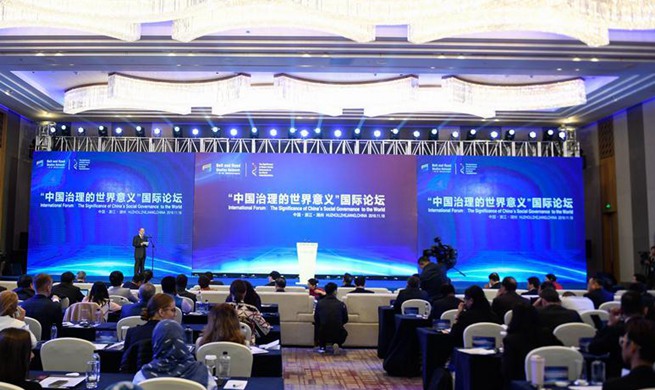WELLINGTON, Nov. 19 (Xinhua) -- The New Zealand government is delivering on its promise to protect people's interests by applying a new national interest test to the sales of the most sensitive and high-risk assets to overseas buyers.
Associate Finance Minister David Parker said under current Overseas Investment Act rules, assets such as ports and airports, telecommunications infrastructure, electricity and other critical infrastructure are not assessed through a national interest lens.
"We are introducing a number of new powers, consistent with global best practice, to protect New Zealanders' best interests in such important - often monopoly - assets," Parker said.
Responding to concerns about overseas investment in water bottling, the government will also require consideration of the impact on water quality and sustainability of a water bottling enterprise, when assessing an investment in sensitive land, he said.
The changes follow last year's reform that generally banned foreign buyers from purchasing residential homes in New Zealand. "That policy has been a huge success. New Zealanders now have a fairer shot at buying a home," Parker said.
A "call in" power will apply to the sale of the country's most strategically important assets, such as firms developing military technology and direct suppliers to defense and security agencies. This will apply to assets not currently screened under the Act.
"The power would only be used to control those investments that pose a significant risk to our national security or public order," he said, adding a bill implementing the changes will be introduced in early 2020.













